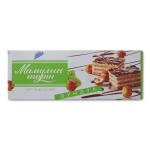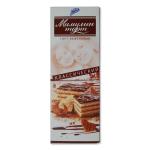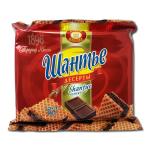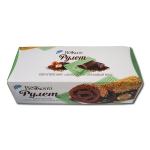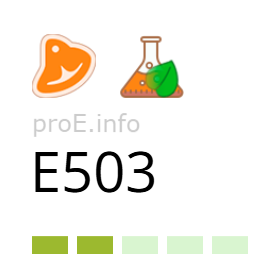
Other names for the additive (synonyms)
General Information
Additive E503 (ammonium carbonates) consists of ammonium salts of carbonic acid and is used in the food industry as an acidity regulator and leavening agent.
According to the Codex Alimentarius: CXG 36-1989, there are 2 subtypes of additive E503:
Additive E503 appears as colorless crystals, highly soluble in water. Ammonium carbonate is a very unstable compound. In air, even at room temperature, a decomposition reaction begins with the release of toxic ammonia gas and the conversion of the substance into ammonium bicarbonate. At temperatures above 60 °C, additive E503 decomposes into water (H2O), carbon dioxide (CO2), and ammonia (NH3).
Due to the release of gases during decomposition, additive E503 is used in the food industry. Its main application is the use of ammonium carbonates in confectionery production and baking as a substitute for yeast.
Ammonium carbonate was first obtained from nitrogenous organic materials (horns, hair, nails) by distillation at high temperatures. Today, in industry, ammonium carbonates are produced by heating a mixture of ammonium chloride (NH4Cl) or through a reverse decomposition reaction: the interaction of ammonia and carbon dioxide with water during rapid cooling.
Effects on the Body
Benefits of Additive E503
Findings of the UK Food Standards Agency (FSA) have shown that additive E503 is not hazardous to human health. However, there is no data on any beneficial properties of ammonium carbonates for the human body.
Risks of Additive E503
According to some sources found online, the additive is considered potentially harmful to human health. These claims may be linked to the high toxicity of ammonia released during the decomposition of ammonium carbonates. However, as noted above, during the chemical reaction (in the process of food preparation), carbon dioxide and ammonia evaporate, and only water remains in the final product. Therefore, the additive can be considered harmful to health only in its raw form or during the preparation process.
Uses
In the food industry, ammonium carbonates as additive E503 is used instead of baking soda or yeast in confectionery and baking. The main products that use ammonium carbonates include various types of cookies, bagels, cakes, and baked goods.
In Northern European and Scandinavian countries, ammonium carbonates has long been used to make traditional types of cookies. For example, Icelandic airy cookies are made exclusively with ammonium carbonate. Replacing it with baking soda (additive E500) or yeast will not yield the original result.
Ammonium carbonates is also used:
- in pharmaceutical products (cough syrups, smelling salts, etc.);
- as a fermentation accelerator in wine production;
- as a component of fire extinguishing compounds;
- in cosmetics as a colourant.
Legal Status
The use of ammonium salts (additive E503) is permitted in almost all countries.
